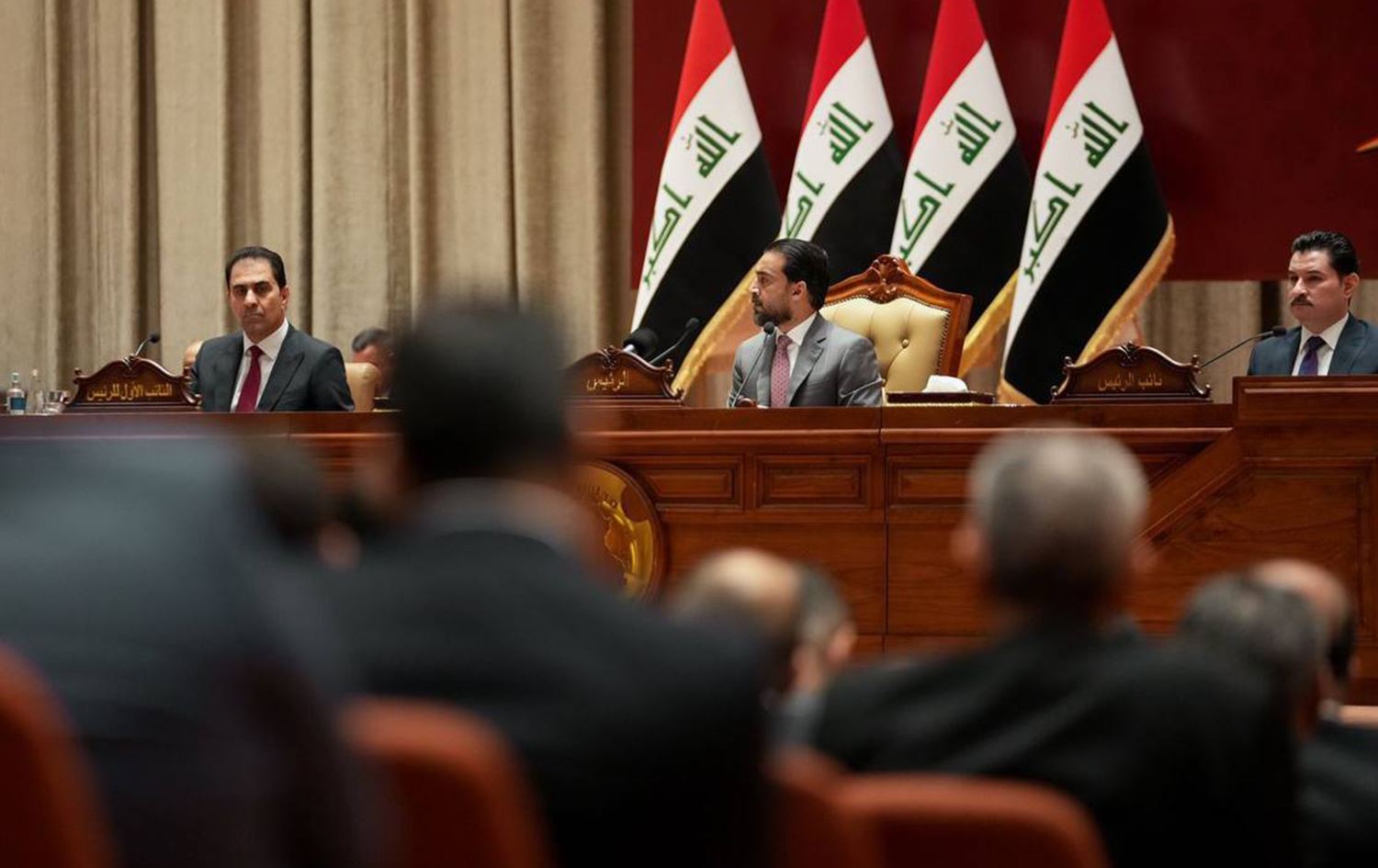Iraq passes a massive, controversial budget bill, ME

Shafaq News/ After a three-month delay, following the Iraqi Council of Ministers’ approval of the federal budget bill on March 13, the Iraqi parliament finally passed this critical legislation on June 11. The record $153 billion budget is based on a price of $70 per barrel and total Iraqi daily exports of 3.5 million barrels of oil (bpd), including 400,000 bpd of exports from the Kurdistan Regional Government (KRG). The budget bill remains valid through 2025 but will be subject to amendments in the following two years to take into consideration potential changes in global oil prices.
Agreement on the budget bill was facilitated by a deal between Baghdad and Erbil that handed the central government the power to monitor and audit the KRG’s income from its oil and natural gas resources. This accord, in turn, came out following the International Chamber of Commerce’s (ICC) ruling last March in favor of the Government of Iraq in its nine-year arbitration case against Turkey over KRG exports to Iraq. In particular, the ICC’s decision gave the coup de grace to the KRG’s independent production and export of its oil and gas.
There are three important takeaways from the just-adopted budget bill:
First, it reflects the short-termist mentality of the de facto governing party of Iraq, the State Administration Coalition (SAC), of which Iraqi Prime Minister Mohammed Shia’ al-Sudani is a member. The budget aims to buy time and patience from Iraqi voters by adding hundreds of thousands full-time and temporary staff and contractors to the public sector, thereby increasing public wage spending, including salaries and pensions, by $58 billion — running counter to recommendations by the International Monetary Fund and many Iraqi economists who have been calling for a tighter fiscal policy. As one economist told this author last month in Baghdad, this is a “public employment budget” and not an “investment budget.” Out of the $153 billion, only $37.9 billion is reserved for investments, including infrastructure projects.
Second, the budget reflects the staying power of the Popular Mobilization Forces (PMF). Namely, the bill includes a major expansion of PMF personnel, though it is not clear yet by how much. Reported estimates span the range of a 20-95% increase in the PMF ranks from the last reported figure of 170,000 in the 2021 budget. It is worth comparing that to the more modest reported increases in the Ministry of Defense (6%) and Ministry of Interior personnel (3%). The PMF militant groups are essential players in furthering the SAC’s agenda to consolidate power and long-term control over Iraqi politics.
And finally, it is not clear yet how the passage of the budget bill — or the intra-SAC negotiations with the two main Kurdish parties leading up to it — facilitates or hinders the Iraqi prime minister’s promise to pass a federal oil and gas law during his term. The same feat had also eluded his predecessors. In the past, bargaining dynamics between Baghdad and Erbil over the control of KRG hydrocarbon resources, which favored Erbil, stood as an obstacle to such a law’s passage. It was not in Erbil’s interest at the time to hand over to Baghdad control of production, export, and financial management of its hydrocarbon resources. Yet since the March ICC ruling, which itself was preceded by Iraq’s Federal Supreme Court ruling in 2022 on the unconstitutionality of the KRG’s oil and gas law, the power dynamics have shifted in favor of Baghdad. The more recent negotiations leading to the passage of the budget bill reflected this change. Going forward, the challenges facing Prime Minister Sudani in getting a federal oil and gas law passed will lie not only with the KRG but with other regional oil-producing governorates that are seeking to strike their own hydrocarbon revenue-sharing deals with Baghdad.
Source: Middle East Institute





